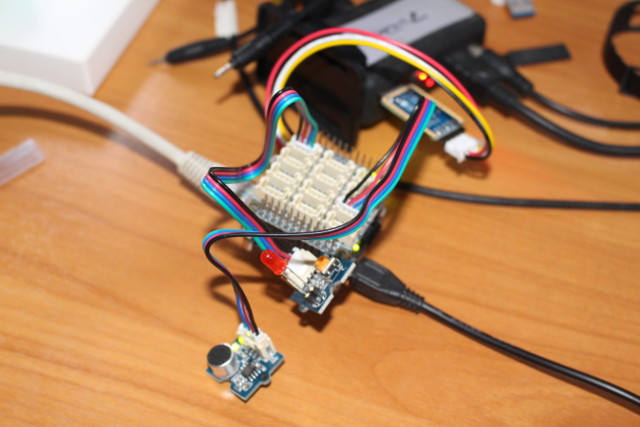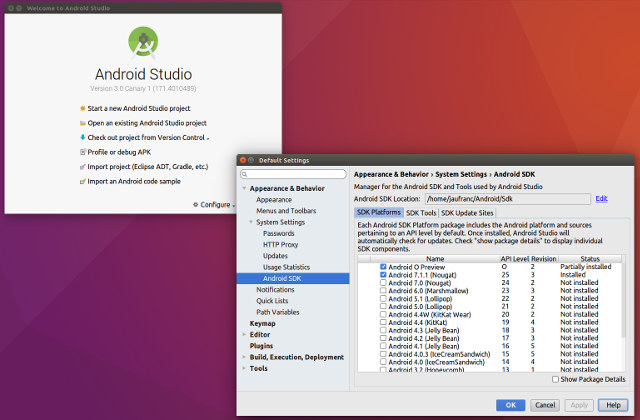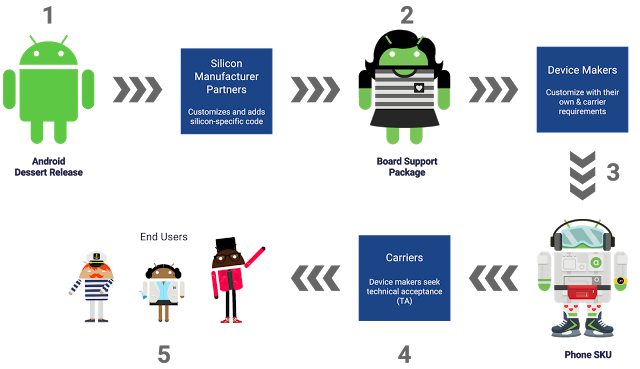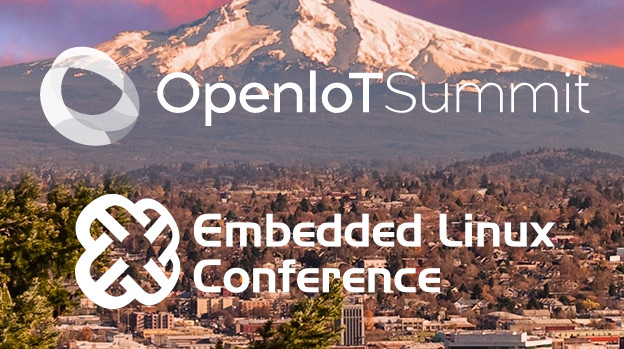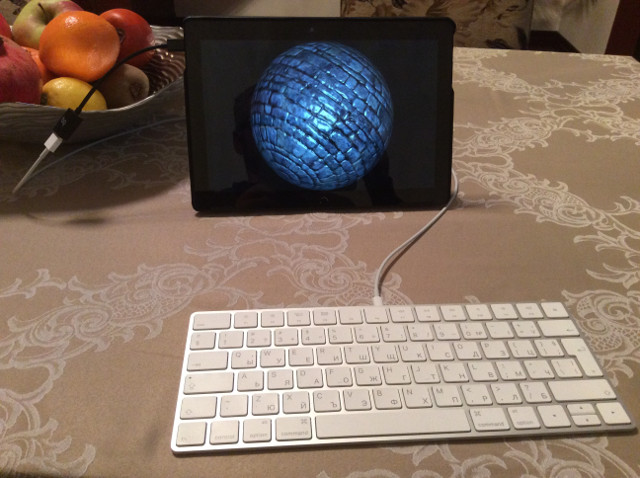Most code running in a web browser runs much slower than native code (C/C++/ assembly), and it’s fine for many applications, but some others requiring higher performance like software video decoding would have to relies on native code, initially provided via browser plugins, but then Google introduced PNaCL (Portable Native Client) allowing to run native code on multiple targets (ARM, Intel, etc..) but in Chrome browser only, and now one of Chrome developers has explained that the community has moved to WebAssembly. WebAssembly works just as well as PNaCl, and is already natively supported by Chrome and Firefox, with support added to preview versions of Microsoft Edge and Apple Safari browsers.Since it works just as well as PNaCL, and adoption of the later is low enough, Google decided to drop support for PNaCl in the Chrome browser in Q1 2018, except inside Chrome Apps and Extensions. To get a feel […]
Getting Started with OpenCV for Tegra on NVIDIA Tegra K1, CPU vs GPU Computer Vision Comparison
This is a guest post by Leonardo Graboski Veiga, Field Application Engineer, Toradex Brasil Introduction Computer vision (CV) is everywhere – from cars to surveillance and production lines, the need for efficient, low power consumption yet powerful embedded systems is nowadays one of the bleeding edge scenarios of technology development. Since this is a very computationally intensive task, running computer vision algorithms in an embedded system CPU might not be enough for some applications. Developers and scientists have noticed that the use of dedicated hardware, such as co-processors and GPUs – the latter traditionally employed for graphics rendering – can greatly improve CV algorithms performance. In the embedded scenario, things usually are not as simple as they look. Embedded GPUs tend to be different from desktop GPUs, thus requiring many workarounds to get extra performance from them. A good example of a drawback from embedded GPUs is that they are […]
Using GPIOs on NanoPi NEO 2 Board with BakeBit Starter Kit
NanoPi NEO 2 is a tiny 64-bit ARM development board powered by Allwinner H5 processor. FriendlyELEC sent me a couple of NEO 2 samples together with their BakeBit Start Kit with a NanoHat and various modules via GPIOs, analog input or I2C. I’ve already tested both Armbian with Linux 4.11 and Ubuntu Core Qt with Linux 3.10, and ran a few benchmarks on NanoPi NEO 2. You would normally prefer to use the Armbian image with Linux mainline since it provided better performance, but at the time I was told GPIO support was not there. Configuring NanoPi NEO 2 board with BakeBit library So this week-end, when I decided to test GPIO support and BakeBit Starter Kit, I decided to follow this advice, especially nanopi-neo2-ubuntu-core-qte-sd4g-20170329.img.zip image is still the recommended one in the Wiki. So I went with that image. I’ll use Python examples from Bakebit library, but if you […]
Android Studio 3.0 Preview Release with Support for Kotlin Programming Language, Android O Preview Images
Most Android apps used to be programmed in Java with the Eclipse IDE, then Google introduced Android Studio in 2013 which has now replaced the latter, and with the release of Android Studio 3.0 Canary 1 preview, the company is now offering developers to program apps using Kotlin language instead of Java. Kotlin programming language is 100% compatible with Java language, and you can even mix Kotlin and Java in your code. Kotlin can make your code much more simple while declaring classes, and it has a few other improvements over Java. Android Studio also include a Java to Kotlin converter. The language has already been used by Expedia, Flipboard, Pinterest, Square, and others. Android Studio 3.0 also brings many other improvement, such as performance profiling tools for the CPU, memory, and networks showing your app performance in real-time, and faster Gradle builds for large sized app projects. Android Studio […]
Google’s Project Treble To Allow Easier & Faster Updates to a New Android Versions
If you’ve ever purchase a phone with Android X, you may have noticed it takes a long time to get an update to Android Y after Google officially release the latest version. The reason it takes so long, except on Google’s own hardware, is that the latest Android version needs to be update by the Silicon vendor, which then sends a BSP to manufacturers, who in turn brings their own tweaks, with in some cases telecom carriers involved in the last step, before delivering the update the end users. This is normally a time-consuming and costly process for all parties involved. One of the reasons is that while the higher level app API is fairly stable, the Android framework (middleware) interface to the Vendor’s implementation may change greatly between different major Android versions. Google is aiming to fix that with Project Treble, starting with Android O, by providing a stable […]
Embedded Linux Conference & OpenIoT Summit 2017 Schedule
The Embedded Linux Conference 2017 and the OpenIoT Summit 2017 will take place earlier than last year, on February 20 – 23, 2017 in Portland, Oregon, USA. This will be the 12th year for ELC, where kernel & system developers, userspace developers, and product vendors meet and collaborate. The schedule has been posted on the Linux Foundation website, and whether you’re going to attend or not, it’s always informative to check out the topics. So as usual, I’ll make a virtual schedule for all 5 days. Monday, February 20 For the first day, the selection is easy, as choices are limited, and the official first day it actually on Tuesday. You can either attend a full-day paid training sessions entitled “Building A Low Powered Smart Appliance Workshop“, and the only session that day: 14:30 – 15:20 – Over-the-air (OTA) Software Updates without Downtime or Service Disruption, by Alfred Bratterud, IncludeOS […]
FOSDEM 2017 Open Source Meeting Schedule
FOSDEM (Free and Open Source Software Developers’ European Meeting) is a 2-day free event for software developers to meet, share ideas and collaborate that happens on the first week-end of February, meaning it will take place on February 4 & 5, 2017 this year. FOSDEM 2017 will features 608 speakers, 653 events, and 54 tracks, with 6 main tracks namely: Architectures, Building, Cloud, Documentation, Miscellaneous, and Security & Encryption. I won’t be there, but it’s always interesting to look at the schedule, and I made my own virtual schedule focusing especially on talks from “Embedded, mobile and automotive” and “Internet of Things” devrooms. Saturday 4, 2017 11:00 – 11:25 – Does your coffee machine speaks Bocce; Teach your IoT thing to speak Modbus and it will not stop talking, by Yaacov Zamir There are many IoT dashboards out on the web, most will require network connection to a server far […]
Self-hosted OpenGL ES Development on Ubuntu Touch
Blu wrote BQ Aquaris M10 Ubuntu Edition review – from a developer’s perspective – last year, and now is back with a new post explaining how to develop and deploy OpenGL ES applications directly on the Ubuntu Touch tablet. Ever since I started using a BQ M10 for console apps development on the go I’ve been wanting to get something, well, flashier going on that tablet. Since I’m a graphics developer by trade and by heart, GLES was the next step on the Ubuntu Touch for me. This article is about writing, building and deploying GLES code on Ubuntu Touch itself, sans a desktop PC. Keep that in mind if some procedure seems unrefined or straight primitive to you – for one, I’m a primitive person, but some tools available on the desktop are, in my opinion, impractical on the Touch itself. That means no QtCreator today, nor Qt, for […]




